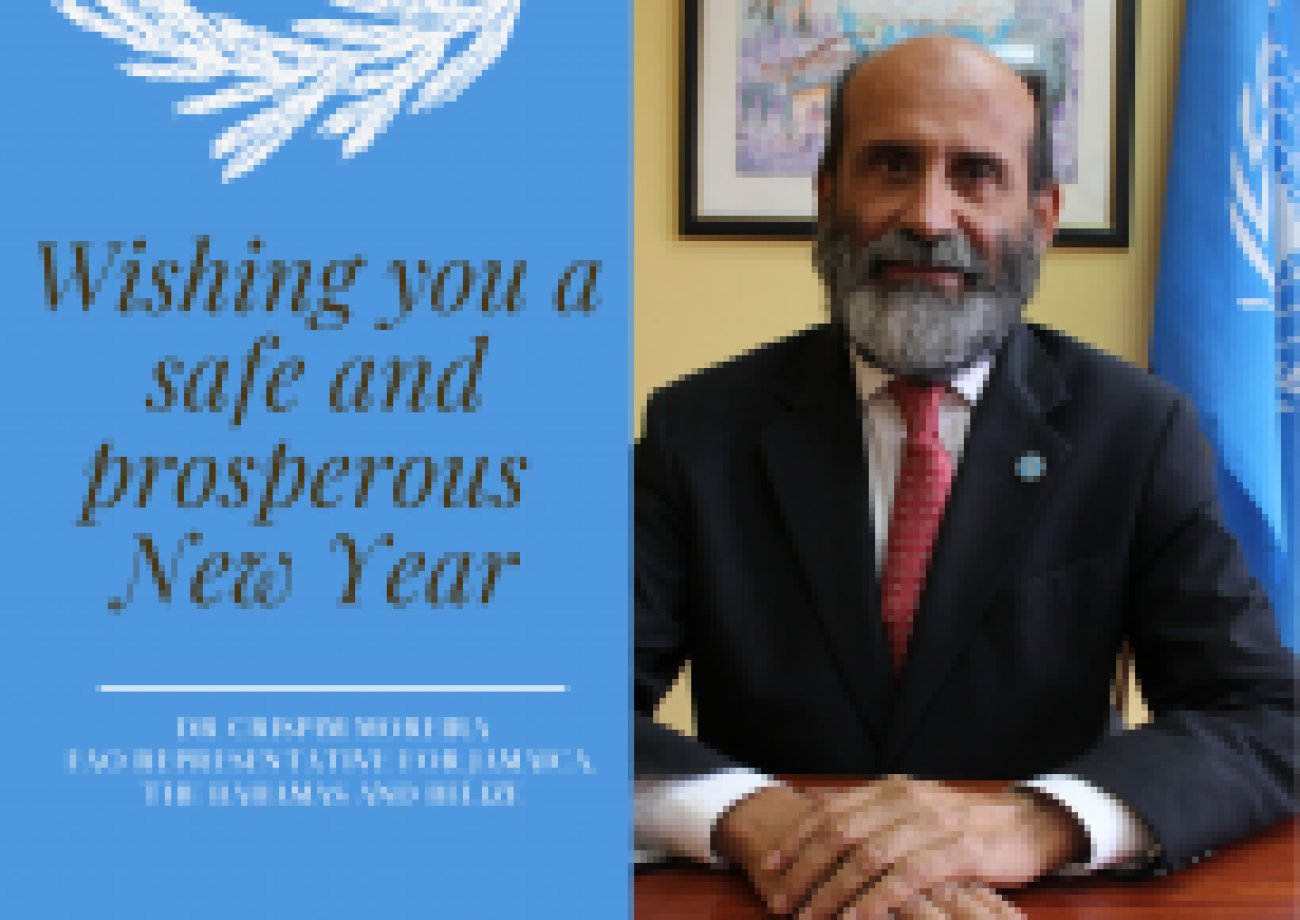End of Year Message from FAO Representative

Warm greetings from the Representation for Jamaica, the Bahamas and Belize.
We started this another unusual year with great optimism amidst the challenges we would continue to face in our countries. As we draw closer to the end of this 2021 chapter of our lives, let us not only continue to be hopeful but be even more grateful.
I am truly grateful to all our farmers, fishers, producers, processors and all those working in the food and agriculture sector who have played a vital role in providing the food on our tables. Despite all challenges faced since the start of the COVID-19 pandemic, they have continued to be some of our most important heroes. The pandemic has revealed the need to address the vulnerabilities in our agri-food systems and a need for us to be prepared to handle any shocks ahead.
The Regional Overview of Food Security and Nutrition 2021 brought us face to face with the reality that across our Caribbean countries approximately 7 million people were living with hunger since 2020, representing 12 per cent of the Latin American and Caribbean population. During that period the prevalence of people who had run out of food and, at worst, had gone a day or more without eating was approximately 71.3 percent in the Caribbean.
Our work in Jamaica, the Bahamas and Belize must continue to ensure that we can help to transform the agri-food systems in our countries to reduce the food insecurity that has been exacerbated by the COVID-19 pandemic and the natural disasters that have affected our countries.
In 2021, FAO member countries approved the new Strategic Framework 2022-2031 for delivering results within countries, based on four principles: Better Production, Better Nutrition, Better Environment, and Better Life. These four betters align with the 2030 Agenda and are now guiding the work in our countries so we can see a transformation to more efficient, inclusive, resilient and sustainable agri-food systems.
Throughout the year in the Bahamas and Belize, we have begun work in developing Agribusiness Incubators to support those working in the food and agriculture sector to improve their local production and services. In Jamaica, with the support of various government agencies and key industry players, we have developed a best practice in competitive and resilient value chain development for the Caribbean region. In the Bahamas, we continue to work with fishers affected by Hurricane Dorian. Across all three countries, we continue our partnership with the Mexican Government in promoting resilience and adaptation of livelihoods and agri-food systems to climate change.
To end the year, the Global Environment Facility has approved a project of Jamaica’s Forestry Department supported by FAO and valued at USD 1.6 million. The project will support the protection and sustainable management of Jamaica’s mangrove ecosystems and biodiversity. This is a major stepping-stone in supporting the country to sustainably manage the natural resources crucial to mitigating climate change impacts, supporting livelihoods and promoting biodiversity protection.
Early next year, FAO will convene its 37th Regional Conference for Latin America and the Caribbean, hosted by the Government of Ecuador. There, governments will meet to discuss and agree on the challenges and priorities related to food and agriculture to guide our work for the next biennium. There is much to be done in our countries and we cannot lose hope.
I believe in a better future for our region. I invite you all to walk with me into the new year with greater optimism for a future that is food secure.
Have a safe and restful holiday as we look forward to the aspirations of 2022.



